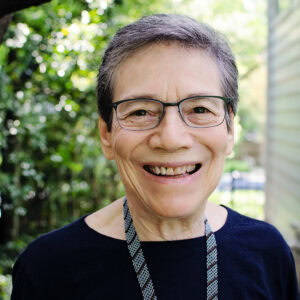Dorothy Ross, a historian of modern social science, died on May 22, 2024. Ross was the Arthur O. Lovejoy Professor Emerita at Johns Hopkins University.

Photo courtesy Ross family
Born in Milwaukee, Wisconsin, on August 13, 1936, Ross attended Smith College before earning at PhD at Columbia University under the supervision of Richard Hofstadter. Ross attributed her career-long understanding that history was as much an analytic as a storytelling enterprise to Hofstadter’s influence. In 1958, she married Stanford G. Ross, a lawyer who would become commissioner of Social Security in the Carter administration. The couple, who were married for 62 years before Stanford’s death, are survived by their two children, Ellen Finn and John Ross.
In 1971, Ross became special assistant to the newly formed Committee on Women Historians of the American Historical Association. This was the AHA’s first paid staff position to support a committee, in this case charged with trying to redress the discriminatory pattern of employment and opportunities in the profession. While serving in this capacity, Ross completed G. Stanley Hall: The Psychologist as Prophet (Univ. of Chicago Press, 1972), detailing the life and career of the first prominent advocate of psychoanalysis in the United States.
During the next two decades, while holding faculty appointments at Princeton University, the University of Virginia, and Hopkins, Ross won respect with a series of analytically penetrating articles extending her scope well beyond the history of social science. The most influential of these was “The Liberal Tradition Revisited and the Republican Tradition Addressed,” in the widely discussed volume edited by John Higham and Paul K. Conkin, New Directions in American Intellectual History (Johns Hopkins Univ. Press, 1979), to which Ross was the only woman contributor. This essay convinced a generation of scholars that the political theories of classical republicanism had more influence on American history than they had recognized.
Ross’s most important book, The Origins of American Social Science (Cambridge Univ. Press, 1991), showed how American social science modeled itself on natural science and liberal politics, and argued that the field was informed by the ideology of American exceptionalism. In a detailed analysis of political science, sociology, and economics, Ross showed how each discipline responded to changes in historical consciousness, political needs, professional structures, and prevailing conceptions of science. In 1994, she edited Modernist Impulses in the Human Sciences, 1870–1930 (Johns Hopkins Univ. Press), collecting articles she had commissioned for international conferences she convened in Bellagio, Italy, and Bielefeld, Germany. Ross also co-edited, with Theodore Porter, volume 7 of The Cambridge History of Science: The Modern Social Sciences (2003).
Ross was a graduate teacher of legendary authority and sensitivity. “She was not the type of professor who just explained things to students,” her Hopkins doctoral student Motoe Sasaki (Hosei Univ.) wrote. “I recall many times she let students find their own way to make sense of specific academic issues or problems,” Sasaki continued. “When I was unsure of things, Dorothy would bombard me with questions from a number of perspectives so that I could realize the direction in which to proceed. This always brought me to a new place.” In 2023, Ross established a fund at Hopkins to support history graduate students.
Ross was a regular presenter and discussant at conferences and symposia, and continued to produce a steady stream of articles and conference papers into the 21st century. In 2021, Modern Intellectual History published “Whatever Happened to the Social in American Social Thought?” This was an ambitious, two-part article that brought to a climax Ross’s long-term, critical engagement with both journalistic and academic writing about society in the modern United States.
Ross is recognized by the Dorothy Ross Article Prize, awarded annually to an emerging scholar by the Society for US Intellectual History, and by the Dorothy Ross Professorship, established in 2023 by Johns Hopkins University. Ross was as perspicacious in intellect as she was modest in demeanor. Refreshingly independent, she knew her own mind and was an unfailingly honest and constructive interlocutor, never overbearing and always responsive.
David A. Hollinger
University of California, Berkeley (emeritus)
Linda K. Kerber
University of Iowa (emerita)
This work is licensed under a Creative Commons Attribution-NonCommercial-NoDerivatives 4.0 International License. Attribution must provide author name, article title, Perspectives on History, date of publication, and a link to this page. This license applies only to the article, not to text or images used here by permission.